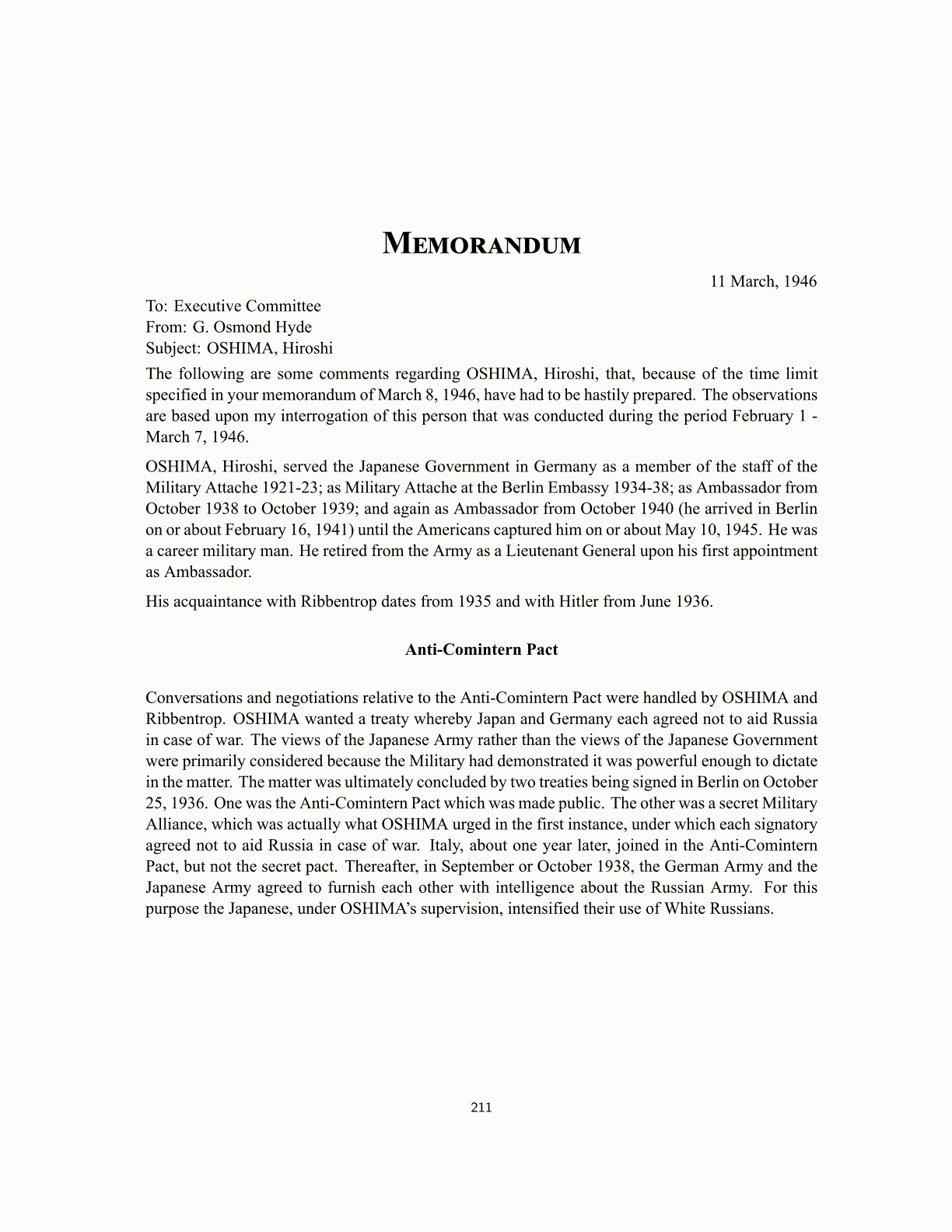
MEMORANDUM 11 March, 1946 To: Executive Committee From: G. Osmond Hyde Subject: OSHIMA, Hiroshi The following are some comments regarding OSHIMA, Hiroshi, that, because of the time limit specified in your memorandum of March 8, 1946, have had to be hastily prepared. The observations are based upon my interrogation of this person that was conducted during the period February 1 - March 7, 1946. OSHIMA, Hiroshi, served the Japanese Government in Germany as a member of the staff of the Military Attache 1921-23; as Military Attache at the Berlin Embassy 1934-38; as Ambassador from October 1938 to October 1939; and again as Ambassador from October 1940 (he arrived in Berlin on or about February 16, 1941) until the Americans captured him on or about May 10, 1945. He was a career military man. He retired from the Army as a Lieutenant General upon his first appointment as Ambassador. His acquaintance with Ribbentrop dates from 1935 and with Hitler from June 1936. Anti-Comintern Pact Conversations and negotiations relative to the Anti-Comintern Pact were handled by OSHIMA and Ribbentrop. OSHIMA wanted a treaty whereby Japan and Germany each agreed not to aid Russia in case of war. The views of the Japanese Army rather than the views of the Japanese Government were primarily considered because the Military had demonstrated it was powerful enough to dictate in the matter. The matter was ultimately concluded by two treaties being signed in Berlin on October 25, 1936. One was the Anti-Comintern Pact which was made public. The other was a secret Military Alliance, which was actually what OSHIMA urged in the first instance, under which each signatory agreed not to aid Russia in case of war. Italy, about one year later, joined in the Anti-Comintern Pact, but not the secret pact. Thereafter, in September or October 1938, the German Army and the Japanese Army agreed to furnish each other with intelligence about the Russian Army. For this purpose the Japanese, under OSHIMA’s supervision, intensified their use of White Russians. 211